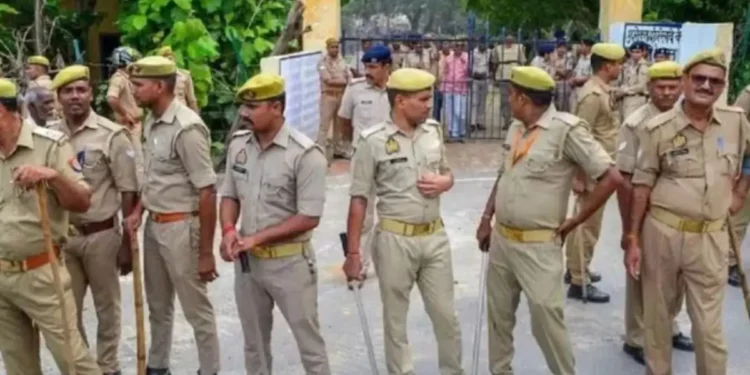The recruitment process for 60,244 constables in Uttar Pradesh is nearing completion, and the UP Police Training Directorate has prepared a comprehensive 13-month cybercrime training program for the recruits. The training, will be conducted at 112 centres across the state. It will focus on enhancing skills in key areas like cybercrime, cryptocurrency, dark web surveillance, and essential soft skills development.
A Rigorous Training Schedule
DG, Training, Tilotma Verma, who designed the training module, the recruits will begin their journey with a one-month training session after completing their joining formalities at their assigned districts. This will be followed by nine months of basic training at 10 police training institutes and 102 recruit training centres. The final phase of the training will involve three months of practical field experience in the recruits’ respective districts.
Verma emphasized that the training would be led by over 1,200 police officers and 3,500 master trainers. And also by subject experts to ensure consistency and high-quality instruction throughout the program. Additionally, specialists in fields like computer science, telecommunications, and forensic science will guide the recruits. “Special subject experts from the pedagogy team are also undergoing additional training,” said Verma.
Focus on New Criminal Laws and Digital Forensics
The curriculum will place special emphasis on the three newly enacted criminal laws: Bharatiya Nyaya Sanhita (BNS), Bharatiya Nagarik Suraksha Sanhita (BNSS), and Bharatiya Sakshya Adhiniyam (BSA). This will prepare the recruits to work within the evolving legal framework.
Another key aspect of the training is digital forensics. The recruits will receive in-depth instruction on scientific evidence collection techniques, including videography and photography of crime scenes. They will also learn how to properly link and upload this data to the Crime and Criminal Tracking Network and Systems (CCTNS).
Cybercrime Training for the Digital Age
Given the increasing rise of cybercrime, the recruits will be thoroughly trained in handling cases related to digital threats. The curriculum includes detailed modules on the IT Act, cybercrime reporting protocols, digital arrests, and addressing advanced digital threats like cryptocurrency scams, deep web activities, and IoT-based crimes. Verma stressed that recruits would be equipped with the skills to handle digital evidence and respond to cyber threats with confidence.
Technology Skills and Soft Skills Development
Technology will be central to the training. Recruits will learn to use tools such as MS Office, mobile applications like e-Sakshya (for evidence collection), e-Prison (for inmate management), UPCOP (for citizen services like e-FIRs), TRINETRA (for criminal tracking), NAFIS (for fingerprint identification), and the e-Challan system.
Additionally, soft skills development will be an essential part of the program. Recruits will undergo training in communication, gender sensitivity, ethical policing, and public interactions, aimed at building a well-rounded police force.
Physical Fitness and Operational Readiness
Physical fitness is also a critical part of the training. The recruits will undergo outdoor physical training focusing on endurance, injury-free exercise routines, stress management, and mental resilience. Tactical and operational readiness will be addressed through field craft drills and training for both urban and rural operations.
“A massive repository of over 1,200 lesson plans, power point presentations, curated videos and supplementary literature have been developed to ensure that every trainee, irrespective of location, receives the same quality of instruction,” Verma added.
Also Read: Indian Cybercrime Coordination Centre Strengthened Under PMLA










